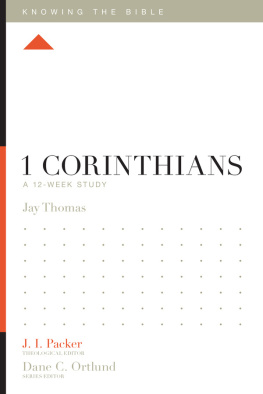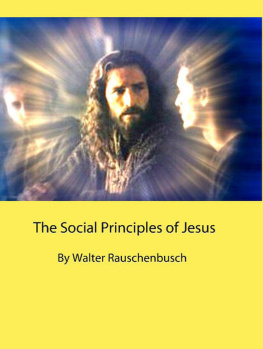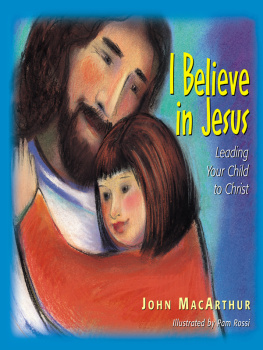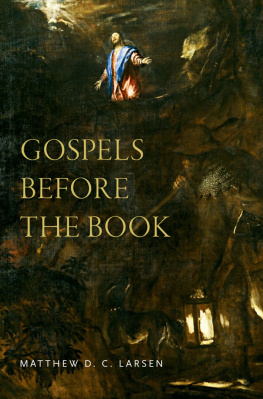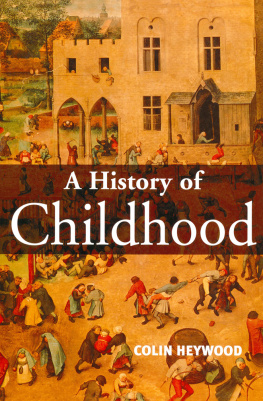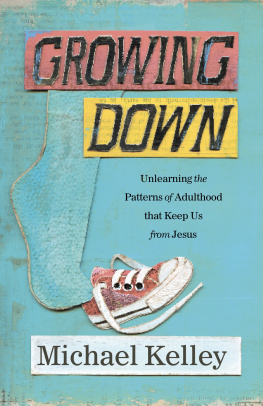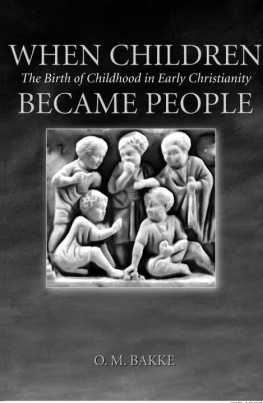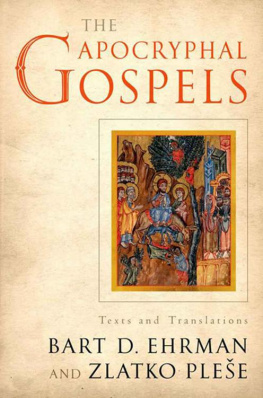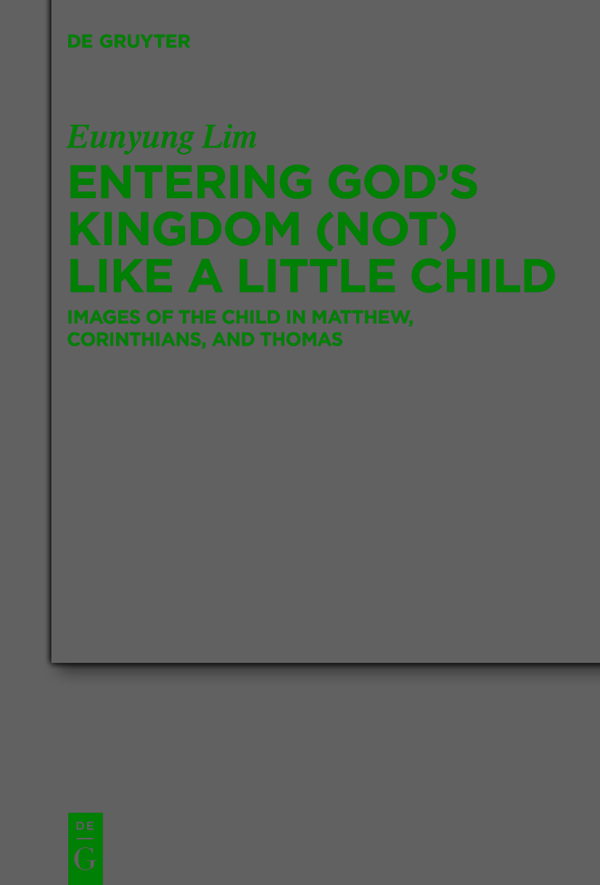Beihefte zur Zeitschrift fr die neutestamentliche Wissenschaft
Edited by
Matthias Konradt
Judith Lieu
Laura Nasrallah
Jens Schrter
Gregory E. Sterling
Volume
ISBN 9783110694987
e-ISBN (PDF) 9783110695076
e-ISBN (EPUB) 9783110695175
Bibliographic information published by the Deutsche Nationalbibliothek
The Deutsche Nationalbibliothek lists this publication in the Deutsche Nationalbibliografie; detailed bibliographic data are available on the Internet at http://dnb.dnb.de.
2021 Walter de Gruyter GmbH, Berlin/Boston
To My Parents
Abstract
Let the little children come to me and do not hinder them, for the kingdom of God belongs to such as these (Matt 19:14; Mark 10:14; Luke 18:16). Based on the gospel accounts of Jesuss welcoming of little children, many people today often presume that early Christianity offered a new, uniform, and positive understanding of children against the backdrop of the ancient world. Challenging such a Christian exceptionalist approach to history, this book asks how individual texts construct childlikeness as it relates to Gods kingdom within their socio-cultural milieus. In particular, it examines imagery of the child used in the Gospel of Matthew, 1 Corinthians, and the Gospel of Thomas vis--vis a set of philosophical, historical, and archaeological materials concerning ancient children, thereby presenting a socio-cultural context in which to understand the childlikeness each text distinctively promotes.
Situating the selected texts within discourses and practices related to children in the ancient Mediterranean world leads to an understanding that Matthew, 1 Corinthians, and Thomas do not speak of childlikeness in the same way. The Gospel of Matthew turns to the social disparity between royal children and poor ones in a post-70-CE Roman colony, using the little child (Matt 18:2) to urge the hearers to abandon their aspiration to political and economic privileges. In 1 Corinthians, infant is a term of invective against the Corinthians, whose infantile lack of proper speech and logos marks their unpreparedness for Gods kingdom. In the Gospel of Thomas, the child serves as an exemplar of the primordial being in Gen 1:27 who exists without shame, for this gospel idealizes the childs sexually undeveloped body and liminal status in society. As these texts take up various aspects of the child from contemporaneous discourses on childhood according to their historical situations, theological foci, and rhetorical purposes, they present no one uniform understanding of childlikeness. Instead, the childs marginalized status in Romes client kingdom, the intellectual incapability of infants presented in ancient philosophical discourse, and the ancient cultural perception of the babys non-gendered state define childlikeness in Matthew, 1 Corinthians, and Thomas respectively, functioning to communicate to their historical audiences different human values regarding Gods kingdom.
Despite these different understandings of childlikeness, however, it is important to note that Matthew, 1 Corinthians, and Thomas simultaneously invite the adult audience to think with children in the process of seeking Gods kingdom. These varied images of children respond to an important religious and ethical question what kind of bodily form or human quality should we cultivate to enter Gods kingdom? thereby concretizing social, moral, and spiritual transformations that Christ-followers must aspire to or avoid. In turn, these texts references to children cannot be used as direct evidence for claims that early Christ-followers were kind to children. However, they present the richness and diversity of theological ideals among those who first received Matthew, 1 Corinthians, and Thomas. Exploring the developmental characteristics and social situations of children reveals that some early Christ-followers cast young children as effective theological imaginaries for expressing various visions of a human condition in which one is worthy to enter Gods kingdom.
Acknowledgments
This book is a revised version of my doctoral dissertation, which I completed at Harvard University Divinity School and defended in the . I would like to thank the editors of Beihefte zur Zeitschrift fur die neutestamentliche Wissenschaft for accepting this book into their fine monograph series, as well as the editorial staff at Walter de Gruyter, especially Alice Meroz and Sabina Dabrowski, for their kind assistance and meticulous work throughout the publication process. I acknowledge that an earlier draft of Chapter 2 of this manuscript was published in the Catholic Biblical Quarterly (83 [2021]: 42545) under the title,Entering the Kingdom of Heaven Not like the Sons of Earthly Kings (Matthew 17:2418:5). I am grateful to CBQ general editor, Leslie Hoppe, for his kind support.
When I embarked on this journey through ancient childhood, I had little knowledge of where it would lead me over the next ten years. Living far from my homeland while writing about how early Christians thought of children led me to experience temporal, cultural, and linguistic border crossings, which often both challenged me and brought unexpected wonders. Many people have accompanied me and witnessed my joys and struggles on this long, arduous path as my research has been reborn into this book.
My deepest gratitude goes to Laura Nasrallah, my dissertation advisor and longtime mentor, for the countless hours she has spent patiently and thoroughly reading so many different iterations of my work; her caring words, practical wisdom, and genuine encouragement have always come right as Ive needed them most. Both her academic rigor and selfless mentorship have been so exemplary that I will always strive to emulate them as a scholar and a teacher.
I would also like to extend my sincere thanks to Karen King for her insightful comments on this research. I learned so much from her expertise in the Coptic language and comparative study of religion, and her encouragement during the final writing stage of my dissertation meant a great deal to me. Giovanni Bazzanas incisive feedback was crucial for my analysis of the Gospel of Matthew, and I am grateful for his warm support and professional advice throughout my doctoral study. Thank you to Elisabeth Schussler Fiorenza for raising thought-provoking questions about my theoretical framework for this project. Her democratic, feminist pedagogy will continue to inspire my teaching. I would also like to acknowledge two late professors at Harvard, Francois Bovon and Helmut Koester, whose scholarship opened my eyes to a variety of ancient materials that I had not previously known. Additionally, I am grateful to Michael D. Jackson for his anthropological insights, which helped me to evaluate ancient texts through a fresh lens, and Stephanie Paulsell, who has shown me that mentoring students and writing can be forms of ministry.
The collegial and supportive atmosphere of the New Testament and Early Christianity program at Harvard offered continual motivation for salvaging my dissertation writing from the abyss of time. My thanks go especially to Margaret Butterfield, Jung Hyun Choi, Greg Given, Sarah Griffis, Chris Hoklotubbe, Roberto Mata, Lydia Bremer-McCollum, Karen Connor McGugan, Heather McLetchie-Leader, Kelsi Morrison-Atkins, Chan Sok Park, Sarah Porter, Jennifer Quigley, and Tyler Schwaller for providing thoughtful feedback on rough drafts of my manuscript and for creating such a wonderful academic community. Friendship, as well as practical and spiritual support, both within and beyond my Harvard circle also sustained me while I was conducting my research; for this, I am especially grateful to Eleanor Craig, Ashleen Menchaca-Bagnulo, Eunhee Nah, Erin Northington, Young Ra Rhee, and Ann Bartels Tackett,


